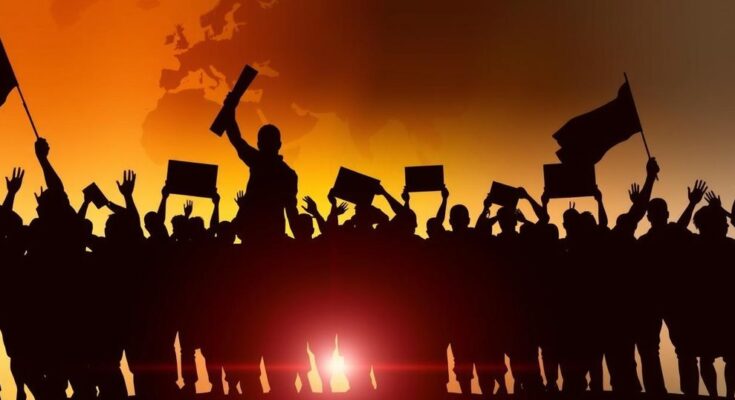On September 25, 2024, protesters in Kinshasa, Congo, demanded the release of political prisoners, including three key opposition figures imprisoned on charges deemed politically motivated. This protest highlighted the ongoing tensions under President Felix Tshisekedi, with opposition parties accusing him of suppressing dissent. The article discusses the ramifications of political repression in the country and the implications for its international reputation in human rights.
In Kinshasa, Democratic Republic of the Congo, hundreds of protesters gathered at the Supreme Court demanding the release of political prisoners, focusing specifically on three leading opposition figures. This demonstration, held on September 25, 2024, was marked by accusations that the imprisoned leaders, Jean-Marc Kabund, Mike Mukebayi, and Seth Kikuni, were detained under politically motivated charges. Opposition parties claim that President Felix Tshisekedi, who has faced scrutiny for his earlier electoral legitimacy and handling of political discord, is suppressing dissent and stifling free expression. Protesters carried banners proclaiming, “Release political prisoners” and expressed their discontent with the political climate. Representatives of various opposition parties submitted a statement to the minister of justice, asserting the illegitimacy of their leaders’ imprisonment in a rule-of-law state. Kabund and Mukebayi are detained at Makala Central Prison, notorious for overcrowding, while Kikuni was arrested recently for allegedly inciting civil unrest. Despite campaigning for a seat on the UN Human Rights Council, the opposition and human rights organizations criticized the government’s human rights record, asserting that it undermines the credibility needed for such a position.
This article discusses the ongoing political tension in the Democratic Republic of the Congo under President Felix Tshisekedi’s administration, where allegations of political oppression have intensified. The prominent opposition figures mentioned have faced imprisonment under charges perceived as politically motivated, reflecting a broader issue of governance characterized by allegations of corruption and suppression of dissenting voices. The protests and the government’s response to these conflicts are pivotal in understanding the state of democracy and human rights within the country.
The protest in Kinshasa underscores the deepening political crisis in the Democratic Republic of the Congo, with demands for the release of opposition leaders reflecting broader frustrations with the current government’s measures against dissent. As the country seeks to establish itself on international platforms like the UN Human Rights Council, the issues surrounding political repression and deteriorating human rights status merit serious consideration and scrutiny from both national and global communities.
Original Source: apnews.com




